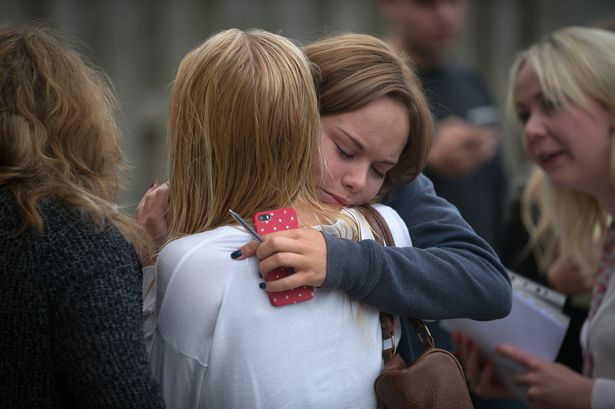Childline counselling sessions for anxiety at highest ever levels
Nearly 900 Welsh children have had counselling sessions for anxiety over the last two years, new figures from the leading children’s charity the NSPCC reveal.
With a 55% rise in the number of counselling sessions with Welsh children about anxiety over the last two years, the charity is warning about the debilitating impact the condition can have on young people.
Volunteers carried out 527 counselling sessions about anxiety with Welsh children in 2016/17, rising from 340 in 2015/16. Hundreds of children who contact Childline do not reveal where they are from, so the true number of young people counselled in Wales is likely to be higher.
Across the UK, thousands of children and teenagers have contacted Childline as they battle anxiety, with some even suffering panic attacks as they struggle to get help.
The latest figures revealed last year (2016/17) the NSPCC-run service delivered 13,746 counselling sessions – the equivalent to 38 a day – to young people from across the UK who suffered with anxiety.
The charity is growing increasingly concerned about the impact anxiety is having on young people as counselling sessions about this issue rose by 59% over the last two years.[1]
Worryingly, in over 3,000 counselling sessions young people talked about having panic attacks which made them feel trapped, faint and left them struggling to breathe.[2]
These figures highlight the importance of children being able to have open conversations about their feelings with a parent or trusted adult. But, for children whose symptoms persist or get worse it is vital they have access to professional support and treatment.
However, some young people have told Childline they do not fit the criteria for Children and Mental Health Support (CAMHS), or have been left on their waiting list for months.
A 17-year-old girl told Childline:
“I suffer with anxiety and panic attacks and find it difficult to leave the house. I was referred to CAMHS but I was on a waiting list for 8 months and during that time my anxiety got worse so I never went because I was too scared. Everyday feels impossible and so difficult and I know I need help but the thought of having to sit there and talk openly, having to re-visit old memories and thoughts with a stranger terrifies me.”
Young people have also experienced challenges at home in getting help, with some having their anxiety dismissed by parents as an overreaction or a passing phase.
In some counselling sessions young people are able to identify triggers for their anxiety such as starting a new school, moving to a new area or upcoming exams; but many don’t think there is any reason for their feelings.
One 16-year-old girl said to counsellors:
“Recently I’ve been feeling anxious and the smallest things make me feel scared. I don’t understand because nothing has happened to trigger it. I’ve just been feeling worse and worse lately. It’s got to the point where I’ve felt so overwhelmed that I just want to run away from it all.”
In some cases, young people turned to self-harm as a means to cope with their anxious feelings, while others told counsellors they experienced other mental and emotional health problems, such as loneliness and depression.
The NSPCC has published advice for parents to help manage their children’s anxiety:
- Listen carefully to your child’s fears and worries
- Stay calm and offer reassurance and comfort when they become anxious
- Find ways to help them relax, such as breathing exercises which is also a good way to control panic attacks
- Encourage them to live healthily and exercise
- Children can always contact Childline free and confidentially 24/7
Des Mannion, head of NSPCC Cymru/Wales, said: “Anxiety is a growing problem in young people’s lives today, and it is not going away. We all need to help children and teenagers find ways to cope with their anxious feelings and not dismiss them as an overreaction. One of the most important ways to help those that are struggling is to make sure they know they always have someone to talk to and they never have to suffer alone, which is why Childline is so vital.”
Dame Esther Rantzen, founder and president of Childline said: “It’s only natural for children and young people to feel worried sometimes, but when they are plagued by constant fears which result in panic attacks and make them too anxious to leave their homes then they need urgent support. Childline is often the first place they come for help because they know they can talk to us in confidence about their fears and worries.”
Children and young people can contact Childline for free, confidential support and advice, 24 hours a day on 0800 1111 or at www.childline.org.uk

| [donate]
| Help keep news FREE for our readersSupporting your local community newspaper/online news outlet is crucial now more than ever. If you believe in independent journalism,then consider making a valuable contribution by making a one-time or monthly donation. We operate in rural areas where providing unbiased news can be challenging. |



















